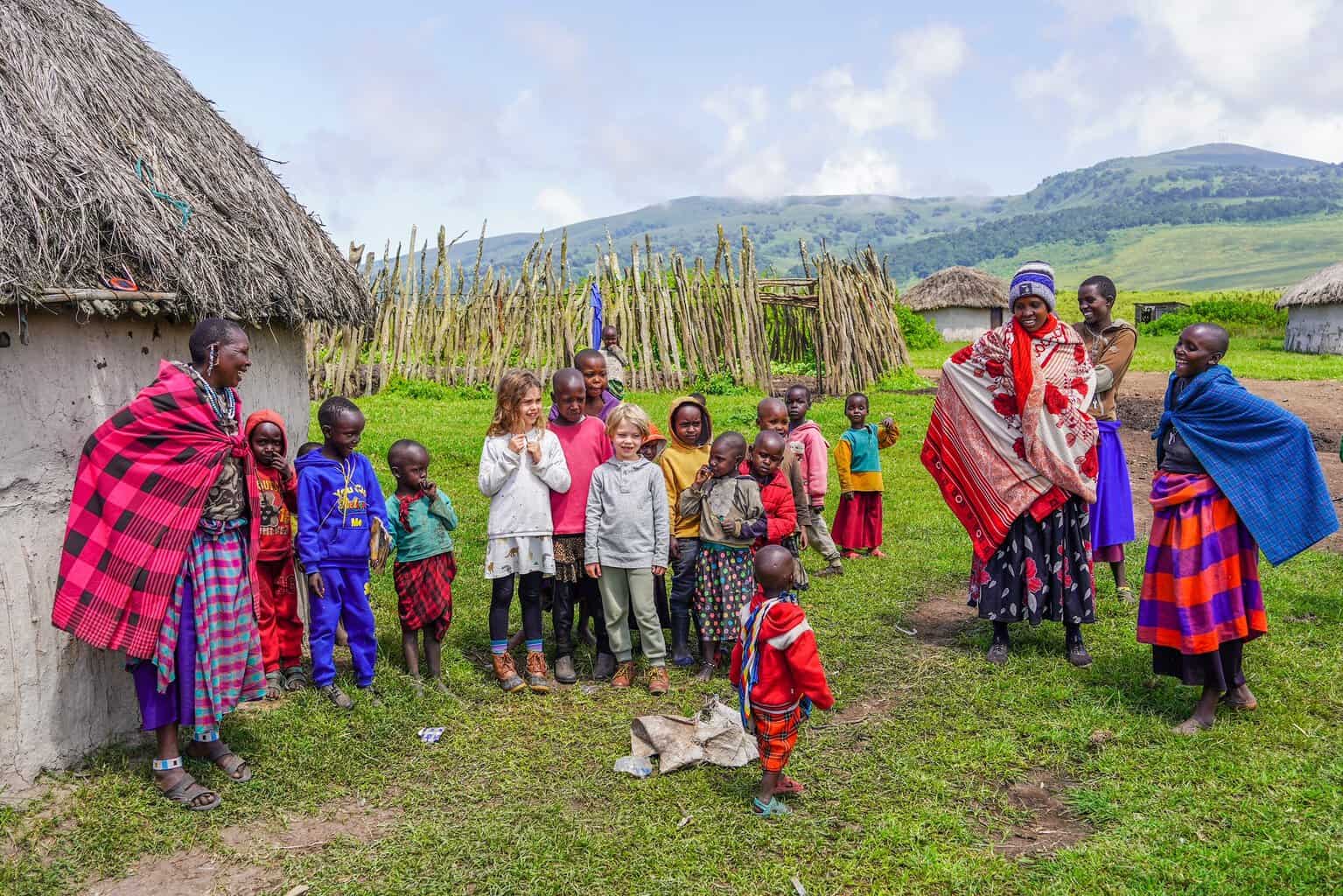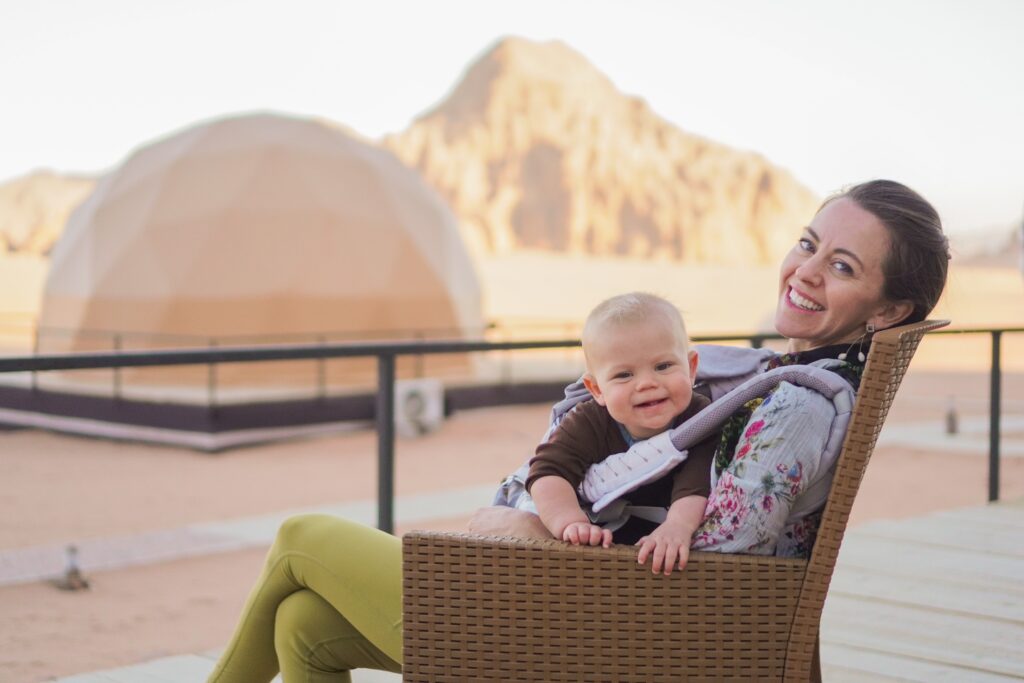What is Worldschooling? Your Ultimate 2024 Guide!
Looking to find information on worldschooling?
You’ve come to the right place. Our family has been worldschooling for over 7 years with no plans to stop. When we started, we had no idea what we were doing. We were world schooling without really knowing that it had an official title. Now, with a lot of experience under our belt, we will share our tips and insight into this form of world travel for education!
So, what is worldschooling and how could you be schooling around the world with your family? More and more families are wanting to understand alternative forms of education and lifestyles. Here you’ll find many possibilities to help you understand world schooling.
And yes, you’ll see it spelled Worldschooling and World Schooling. Both are accurate!
If you have questions about worldschooling, feel free to shoot us an email. We are happy to offer suggestions that have helped us along the way!
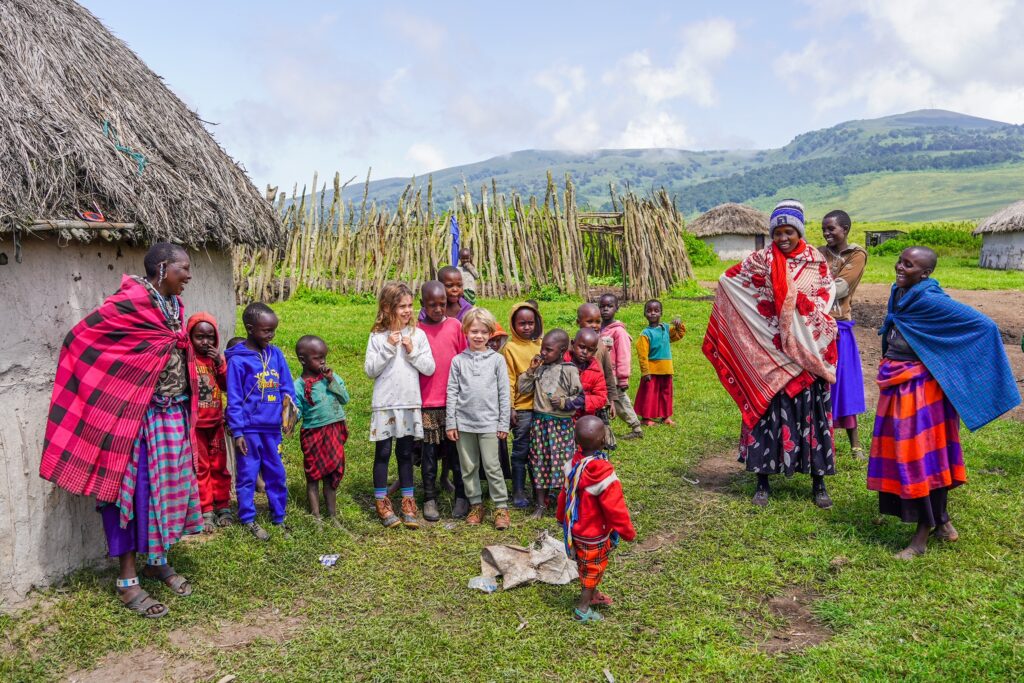
Our content is reader supported, meaning that at no additional cost to you, we may receive a commission if you click through and make a purchase from some of our links. For more information, read our disclosure here.
Ready to Plan? Check out these Travel Resources!
Safety Wing has been our go-to for trip insurance over the last few years. They are affordable and it’s easy to receive a quick quote.
Booking.com is the platform we use most often for booking accommodations!
What is Worldschooling?
It’s quite simple, really. Worldschooling is seeing the world and learning through cultural immersion and hands-on experiences. Instead of learning about the pyramids of Egypt from a textbook, you are at the pyramids, seeing the hieroglyphics on the walls firsthand. You are invited into locals’ homes to cook traditional meals with them and see how they live.
You’ll find that every family approaches worldschooling a bit differently. This allows you to really make it your own and not feel the constraints of doing something because it’s part of the traditional curriculum or societal norm.
When our family started world schooling, it was quite literally seeing the world, learning about it and allowing conversations to open up because of it. It was also about spending quality time together as a family leading a digital nomad lifestyle.
There are important elements to worldschooling that I believe go beyond a curriculum. It is the togetherness and bonding time as a family, the eagerness to learn and explore, the excitement that comes from trying and experiencing new things, the mindfulness and conscientiousness and living each day instead of going through the motions.
As the years went by and our kids were of school age, we wanted more community, socialization and forms of academia. We decided to approach world schooling in various ways: learning while traveling, take part in worldschool communities, attending some world schools in various locations, enrolling in local schools around the world from time to time and engaging in some of our own academia – kind of like homeschooling but on our own terms with no strict curriculum.
So, as you can see, you can approach worldschooling in many different ways.
Most importantly, you don’t need to travel full time to be a worldschooler. You can do part time worldschooling, which we will cover as well!
How to Worldschool?
Worldschooling doesn’t have to be a full time commitment. While some digital nomad families travel full time like ours, many families choose to worldschool for a few months out of the year or maybe during their summer break.
How to Worldschool Full-Time?
If you worldschool full time, you will essentially need to know the homeschooling rules and regulations of your country or state. But don’t overcomplicate it. Most of those rules are in place to protect children and not to scare good-meaning parents from taking control of your kids’ education!
Worldschooling full-time offers endless options. You can travel by yourself to places you wish to learn about and visit. Or you can join a traveling worldschool community to travel with other families for a set period of time. (Some of these traveling schools have a teacher accompany them, while in other groups, the parents are expected to be more hands-on in the learning process.)
For us, we do a combination of traveling on our own and allowing our kids to take a more self-directed learning approach. Then we pair it with world school programs such as Boundless Life (we’ve attended Boundless Life Sintra (outside of Lisbon Portugal), Boundless Life Syros (hidden gem Greek Island), Boundless Life Tuscany (Pistoia Italy) and soon Boundless Life Bali).
We have even had our kids attend a local private school in Mexico from time to time, mainly for the total immersion of language and culture. And, we have attended various worldschooling hubs, such as a world school in The Dominican Republic (more self-directed learning) and a popup worldschool in Nicaragua (which was a super fun family-camp style!).
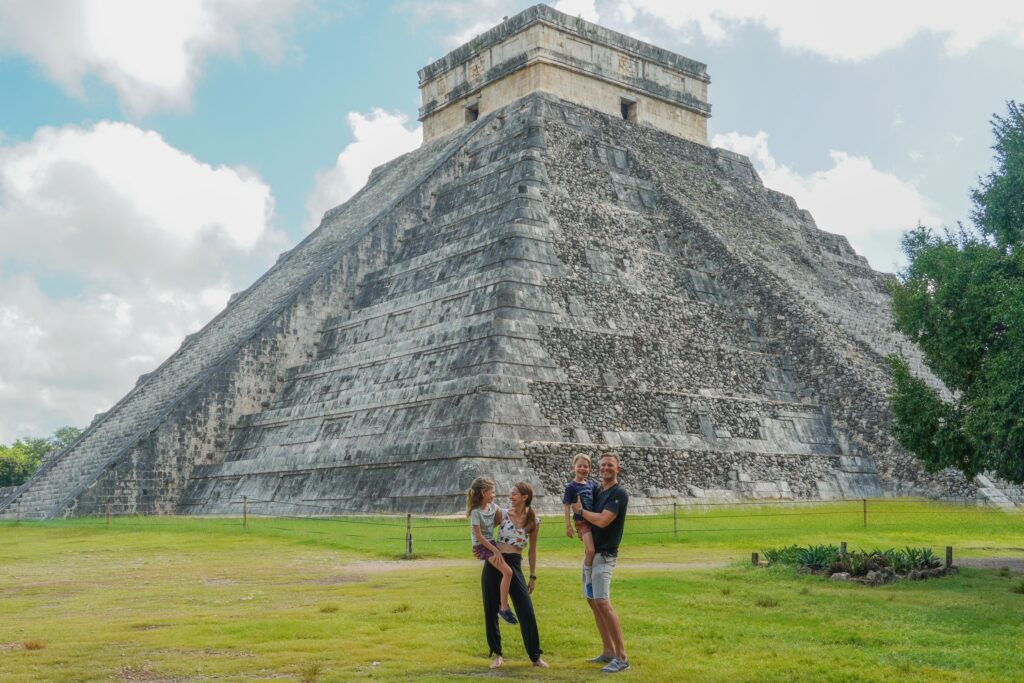
How to Worldschool Part-Time?
If you worldschool part time, you can view it like a vacation focused on learning. Maybe you use your summer break to join one of the many worldschooling pop ups, which tend to be anywhere from 1 week to a few months. Some part-time worldschooling families choose to take their kids out of their traditional school for a few months in order to worldschool, which could be a possibility for you too as many schools see the value in a world education.
MAKE SURE TO SIGN UP FOR OUR MONTHLY NEWSLETTER, WHERE I ALWAYS INCLUDE NEW WORLD SCHOOL COMMUNITIES AND WORLDSCHOOL HUBS!
Examples of Worldschooling
There are schools around the world that take short-term students, there are worldschools that offer locations throughout the world, there are world school communities, worldschool pop ups, and traveling schools. The options are truly endless.
Here, are many examples of worldschooling …
Boundless Life Worldschool offers community activities, an education center for the kids, accommodations and a co-working space for parents. Boundless destinations include Portugal, Greece, Italy and Indonesia.
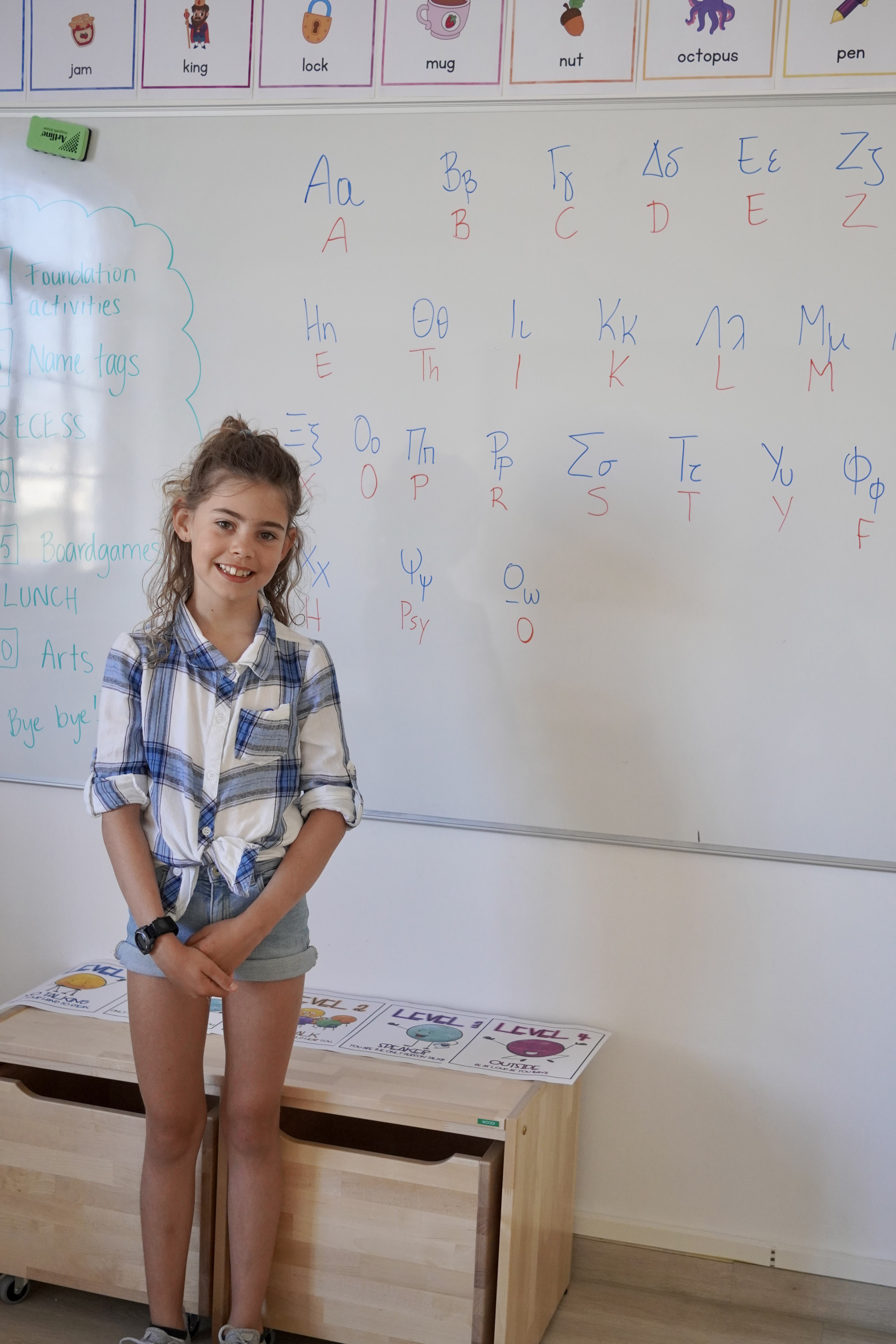
use code: MichelleSchomp for
600 Euros OFF YOUR FIRST STAY!
Another kids world school that is geared toward kids ages 4-16 years old is The Hive in the Dominican Republic. They offer a variety of camps and sessions where you can choose the length of time you wish to spend there!
Outside of communities of worldschoolers and pop ups, you can also worldschool on your own. Here are several examples of our world schooling family, learning by traveling.
We often arrange private tours to experience off-the-beaten-path family travel, such as this trip to Egypt to see some of the lesser-known pyramids.
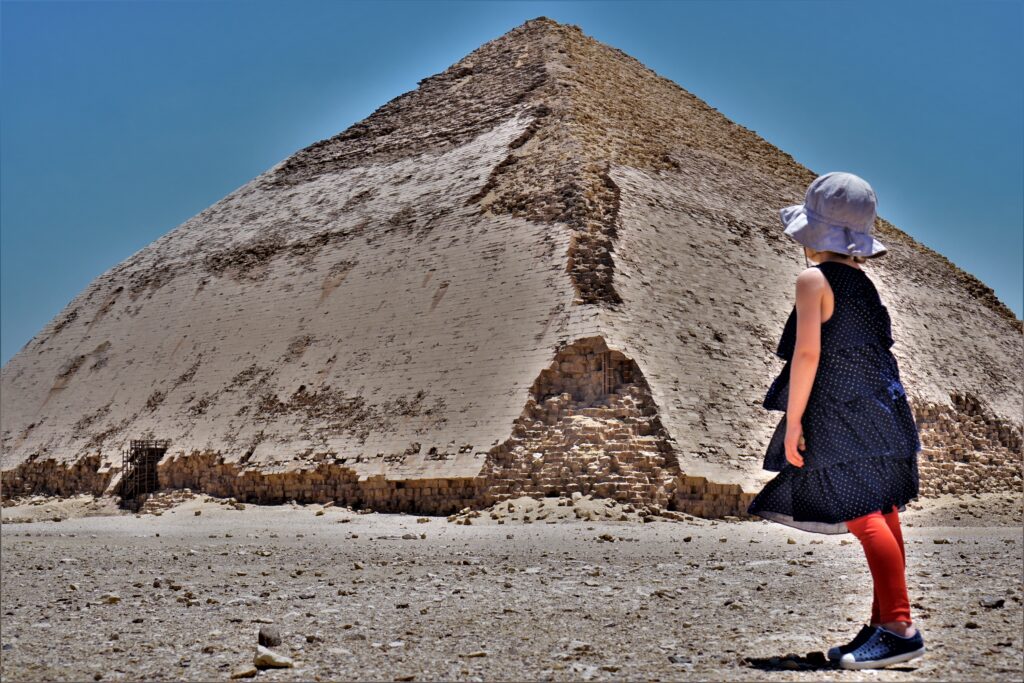
Here we arranged to visit a local family’s home in Laos to learn to cook with their multi-generational family. This is learning with all your senses, including our favorite, tasting new foods!!
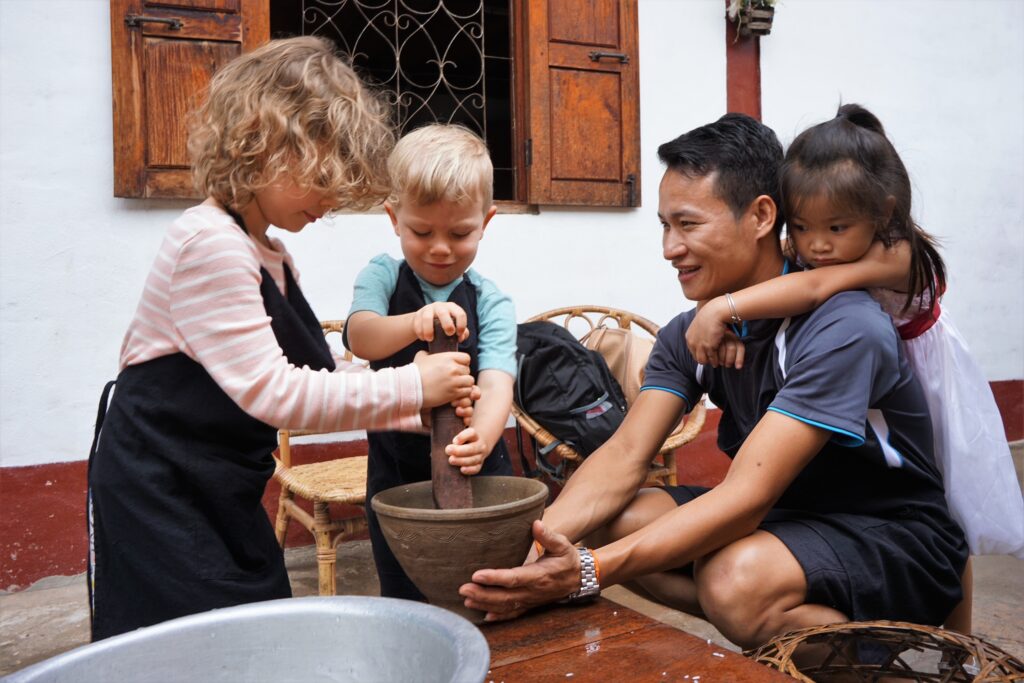
Here in Patagonia in Childe, we took a break from the cold kayaking by hiding in the mangroves and enjoying a local tradition. Passing around a warm yerba mate.
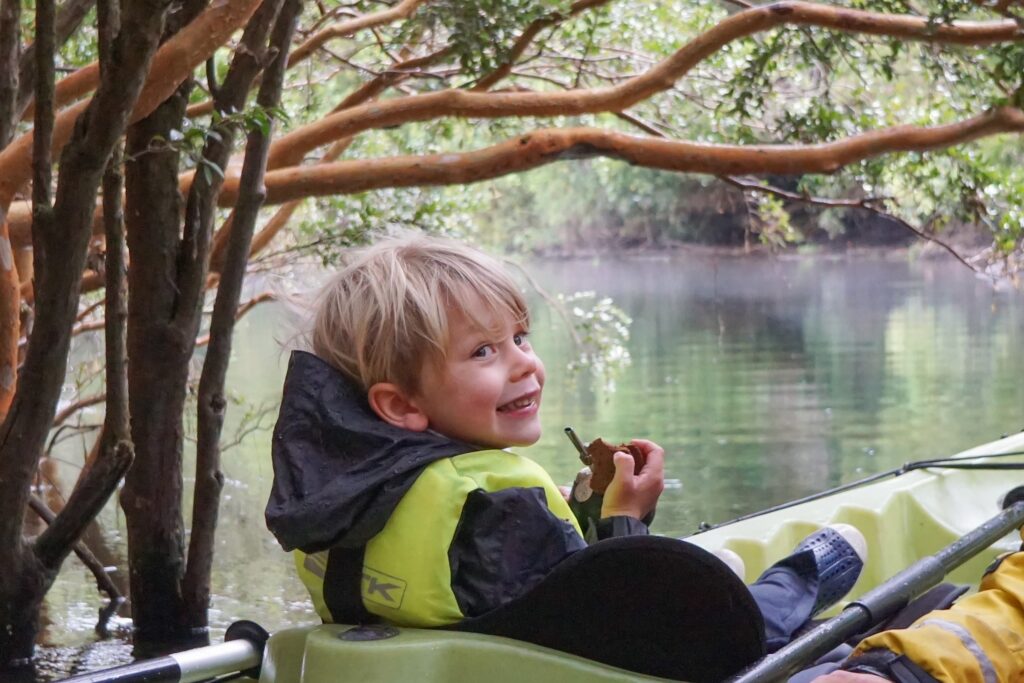
We visited a nomadic family on the border of Morocco, close to Algeria. Quite an eye-opening experience to see how families live with different customs, beliefs and traditions. These world schooling experiences open up engaging conversations with our kids.
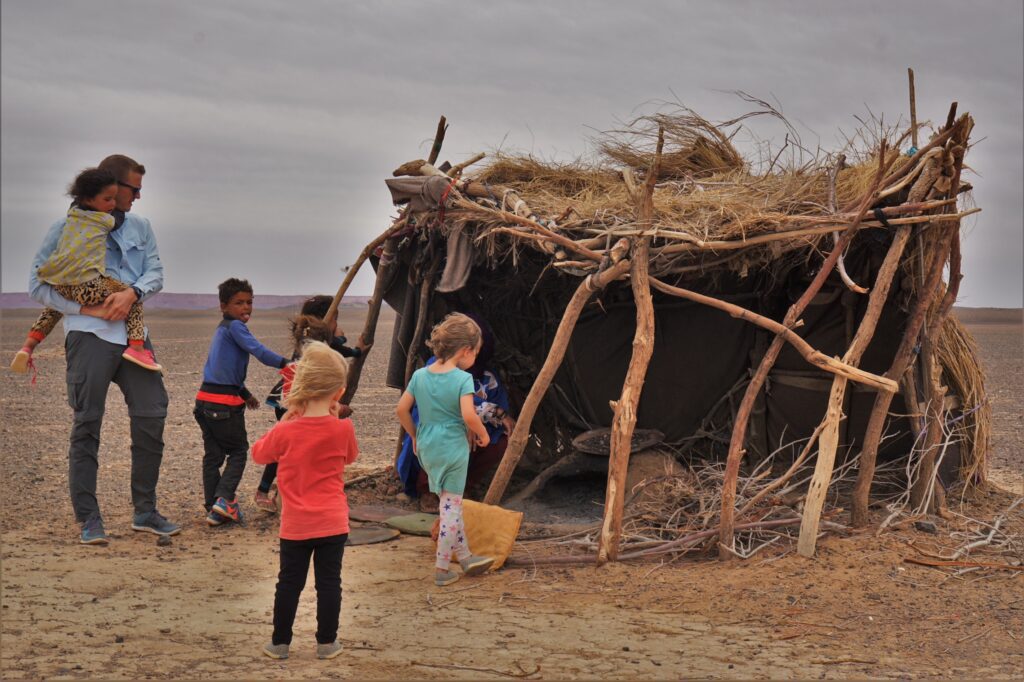
We ventured off the beaten path in Colombia to learn how to make paper at a local little shop. This was part of our family tour in Colombia, which included lots of world schooling experiences like this.
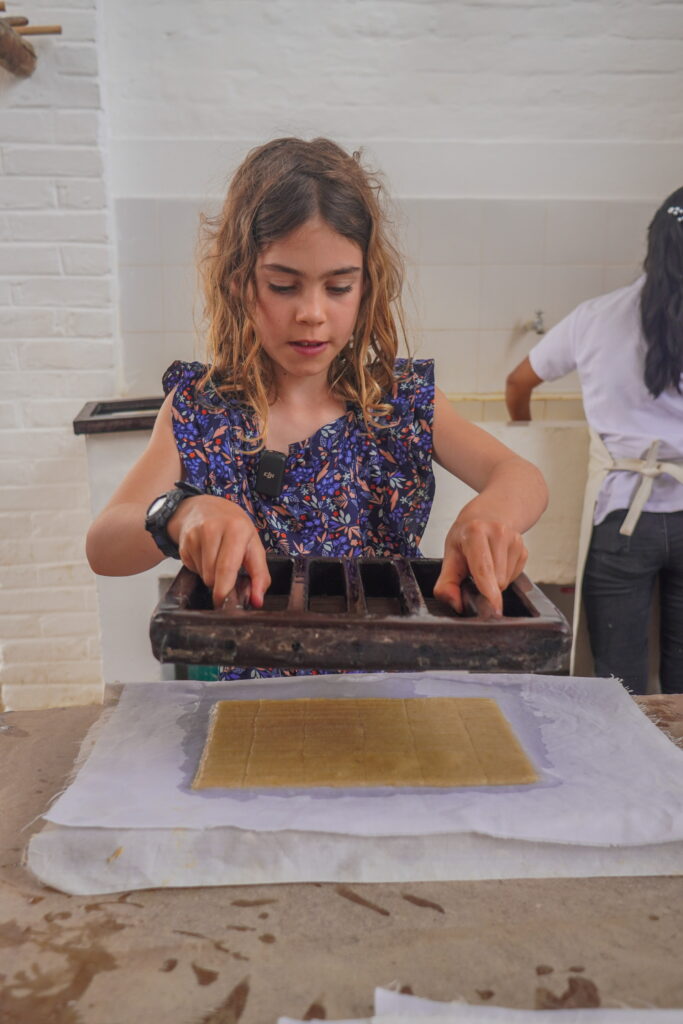
While spending time in Tuscany, we often take day trips to Tuscan towns, eating local foods, learning about the history and seeing the culture firsthand. This is what worldschooling is all about, observing and absorbing the local way of life!
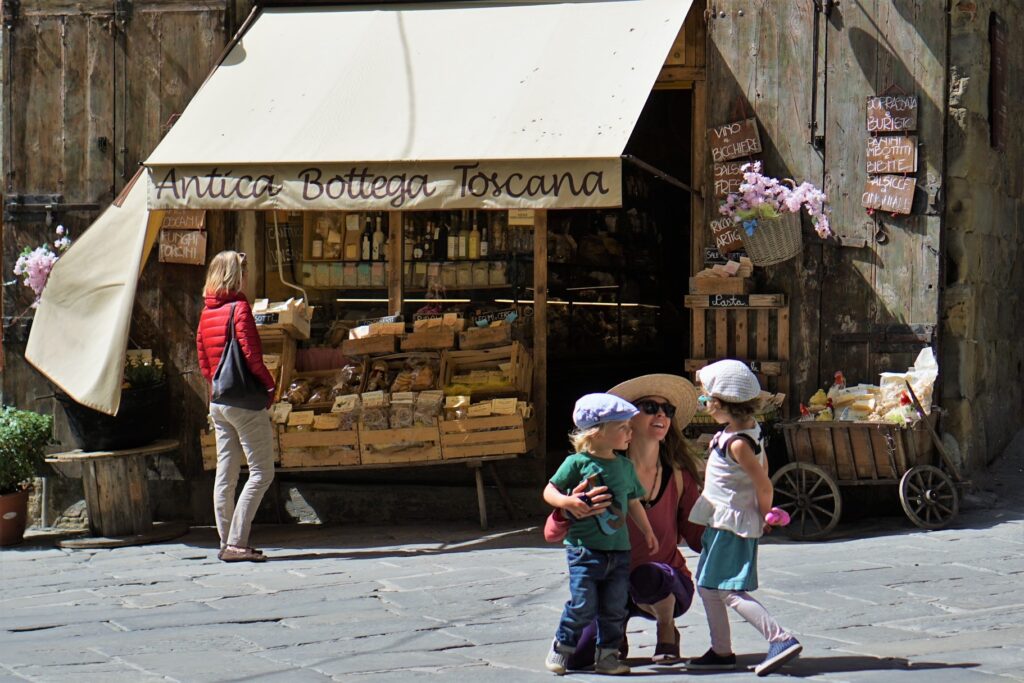
We planned an epic 10 days in Jordan itinerary. But, instead of us having to do all the research, we had our kids spend time researching Petra as part of their world school assignment. This included having them watch a documentary before we ventured out to hike Petra with kids!
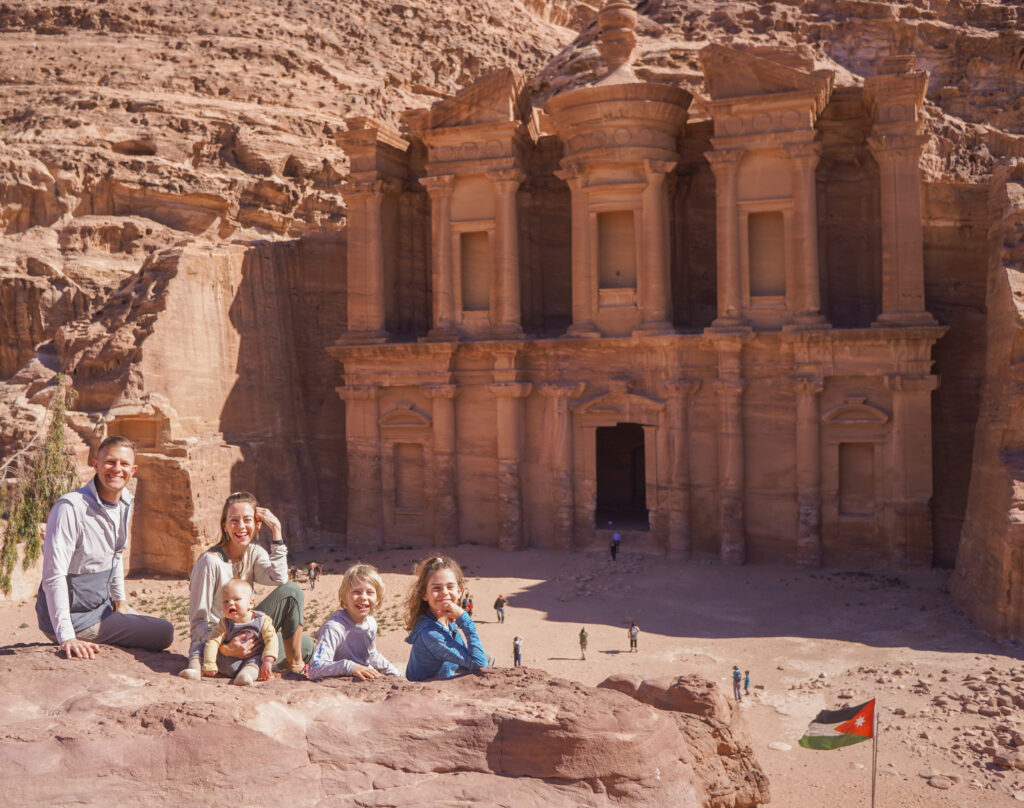
As you can see, we worldschool in many different ways. Sometimes, it is snorkeling in Grand Cayman or a family trip to Barbados; while other times it is learning that there are no polar bears in Antarctica or seeing the circle of life in Tanzania. At times, we enroll in schools around the world and other times we follow our own type of homeschool curriculum.
There are many ways to approach world schooling!
Worldschooling Curriculum
Worldschooling curriculum can take many forms. You can find an online homeschooling curriculum that you can do while traveling. (I don’t suggest anything that uses hefty books as you’ll have to lug them when traveling.) Many families don’t want their kids on screens all day, so they choose to do a mix of curriculums, while others don’t follow any curriculum.
Some base their worldschooling curriculum on the destination. Maybe it’s learning a language or finding local kids’ activities to be involved in (ballet or soccer or arts). It could be visiting local museums or take a cooking class.
While, we don’t follow a homeschooling curriculum when we travel on our own, we don’t necessarily unschool either. Through the years, our kids have gained a love for learning.
They read a lot and enjoy learning new things. (We find these Kids Kindles to be especially useful when traveling and just rent digital books from the library.)
We do some math, reading and writing based on what we feel they need. And our kids come to us with what they want to learn.
For example, my kids currently want to learn how to play piano, which is not an easy task while traveling. So we found an app and purchased this travel sized mini piano keyboard for them to learn!
Sometimes it is random topics. While we are slow traveling without much of an agenda in Mexico for the month, my son wanted to learn all about aviation and Morse code. My daughter wanted to learn French and how to knit. We brought a couple of workbooks for them to do periodically over the month, such as a logic workbook and some math.
On a daily basis, they need to speak Spanish to order their food and interact with locals. Once a week, we’ve had a chef come in to cook some dinners while the kids help and learn new cooking techniques. Much of their time this month is spent in the pool here, as next month they will attend a local Mexican school.
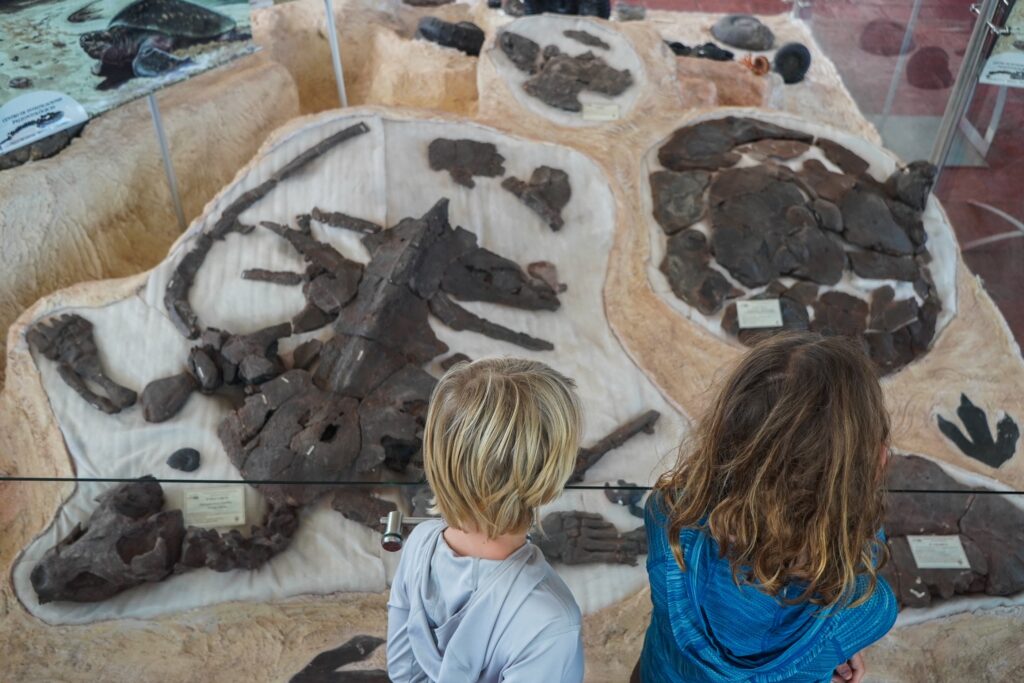
How Worldschooling Affects Kids?
This is the burning question. How will world schooling affect my kids?
Will they become unsocial? Will they learn what they need to learn? How will they be educated?
Of course, every family is unique and every child thrives in different environments.
In our experience, the majority of worldschooling families that we have met, tend to be more open-minded. They tend to have an appreciation for living in the now and enjoy learning. They come from all walks of life, and they run the gamut of jobs and incomes, but they all share a common theme of seeing life outside of the box.
We’ve seen how worldschooling helps kids build independence and confidence. Having a more flexible curriculum and lifestyle also tends to help kids be fearless in exploring new interests and develop a love for self-directed learning.
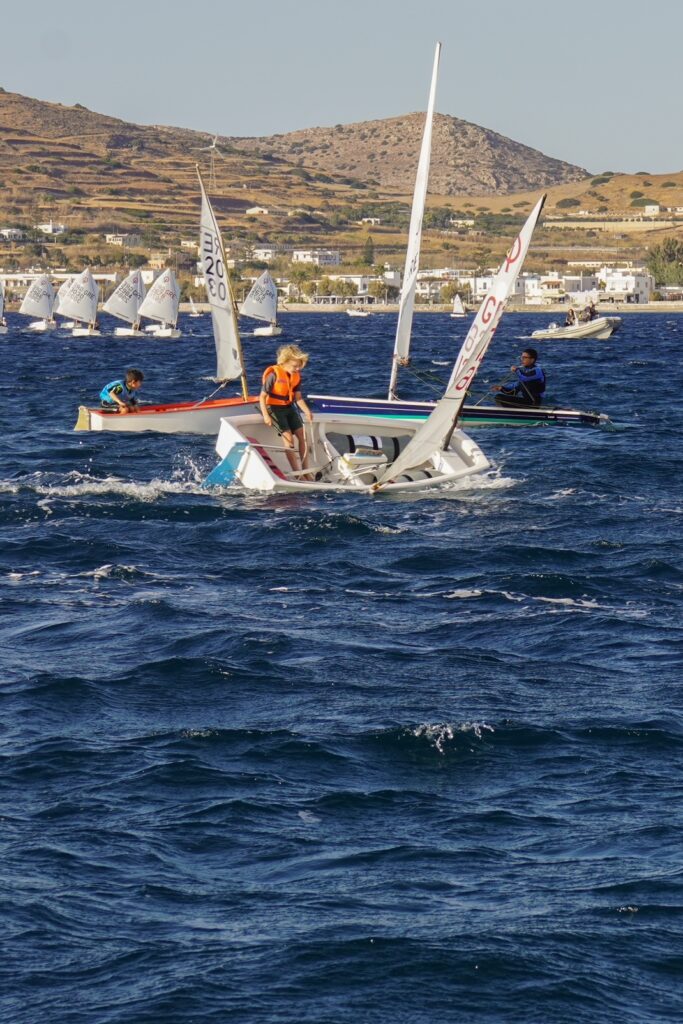
Benefits of Worldschooling
There are many benefits to worldschooling. I think the biggest one we see is that it develops a true curiosity about the world and love for learning. Children are a bit more free in movement and tend to be out in nature more. There are no standardized tests and usually no homework. For us, it is important that our kids are exposed to other languages (which we just don’t get enough of in the United States).
Contrary to society’s views of homeschooled or worldschooled kids, we have found that worldschooled kids tend to be quite social and can have conversations with adults and peers alike.
What will Happen if I Worldschool my Kids?
I recently heard Michelle Polar of Hello Fears speak and loved this quote: What’s the BEST that Can Happen? Looking at it through a lens of positivity, if you are hesitating to begin any type of worldschooling journey, ask yourself this question!
Honestly, none of us have all the answers about what will happen if you send your kids to a traditional school vs. worldschool vs. unschool vs. homeschool vs. a combination. Figure out what is right for your family, but don’t hesitate to give it a try.
After all …. What’s the Best That Can Happen for your Kids and Family?
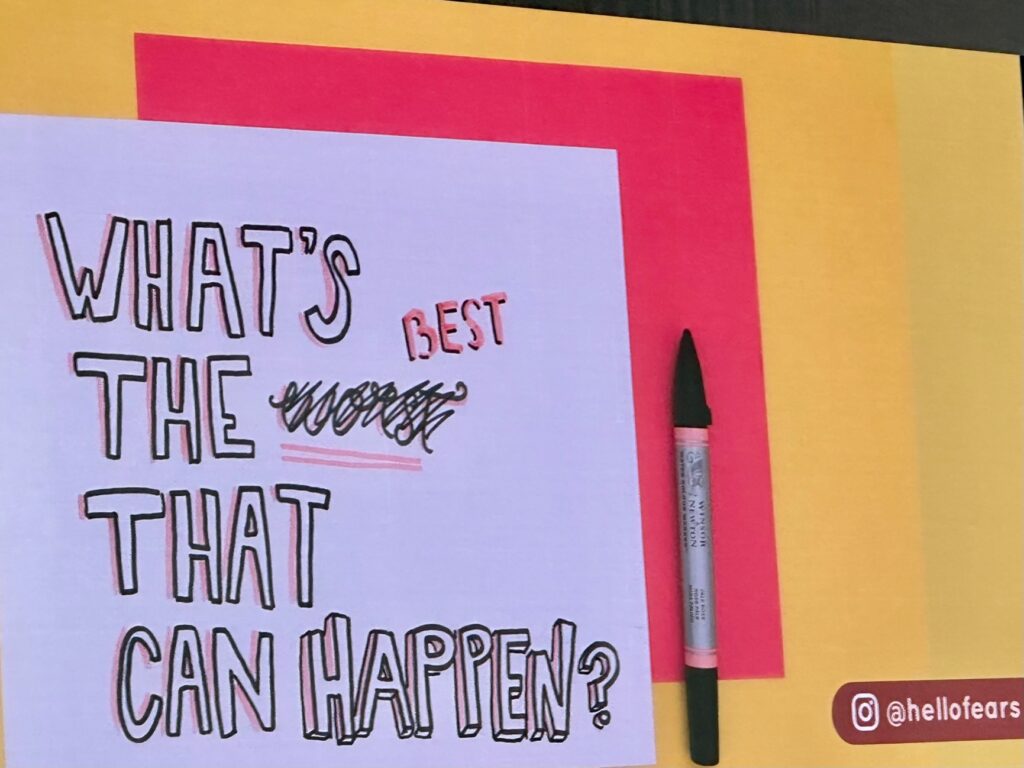
World schooling Meaning
Worldschooling can take on many forms, but what is the meaning of world schooling from a kids’ perspective?
I asked my kids to define worldschooling and give me an example:
📌 Kids Perspective: Define Worldschooling and give me some examples of school on the road
Henley (My daughter, 10 yo): Worldschool is when you go to cool places that other people may only see through the internet or books. Then, you learn about the world while seeing it.
At one of the world schools I went to, we got to go on these amazing, super fun field trips. In the Boundless Italy location, we went to a farm and made fresh pasta. I really enjoy cooking and I liked learning from the source.
In Boundless Greece I did a project where I made a 3D model of how trees talk to each other in a system of roots. In Boundless Portugal, I made cooking videos, which was really fun because I love cooking. And in Italy, I made clothing and fashion out of recycled trash. All of these projects were based on sustainable development goals that we studied.
Jagger (my son, 8 yo): In Italy, I made a model airplane and a trash world to show the parents how to improve our planet through recycling. In Greece, I learned stop-animation and made a robot show about our United Nations’ sustainable development goal.
📌 Kids Perspective: What is your favorite part about Worldschooling?
Henley: My favorite part of worldschooling is that I get to learn about different countries and cultures. Plus it’s just fun to have new adventures all the time and we still have the flexibility to go back to visit family many times throughout the year, which I love too.
Jagger: My favorite part about world schooling is that I get to meet new friends in new places. And I get to go to different places to see all of the cultures. It’s fun to spend time as a family. Oh, and I get to meet up with friends in various parts of the world and see them in multiple countries.
📌 Kids Perspective: What is your least favorite part about Worldschooling?
Jagger: I don’t know. Well, I do miss some of my friends in the USA and my famiIy. We do get to spend a lot of time together when we go there though and sometimes they come to visit us, which is fun. It’s always sad to leave a place and new friends, but it’s also exciting to go to the next place.
Henley: It’s sometimes hard to leave new friends. Though, we sometimes get to see them in other places. And, I miss my friends from back home too, but we usually get to meet up with them throughout the year. We did cry when we left some of the camps in Tanzania because we had so much fun with the people there.
What NOT to say to Worldschooling Families
Maybe this is a bit of a PSA. Maybe it is to help you if you’ve ever had this thought or you fear that you will get this feedback.
Don’t Say: Too bad your kids won’t remember.
The number of times I’ve heard this is daunting. Let’s be clear.
First, I can’t even remember everything I did yesterday, let alone 10 years ago. It doesn’t mean I shouldn’t go experience something! We do not expect that our kids will remember everything and you shouldn’t either.
Second, your kids will remember much more than you can imagine. My daughter was 3 years old when we started. Without being prompted with old photos and videos, she remembers some of the craziest details that I couldn’t even remember (yes, 7 years later!). I have to go back often and make sure she is remembering correctly. 99% of the time, she is!
Third, if you aren’t going to travel with them because they won’t remember, what are you going to do with them? Do you read to them? Cuddle them? Spend time with them? Why – if it doesn’t matter? Because it does!! That’s why! They remember the feeling of being together, of being loved.
Lastly, if you aren’t also doing it for you too, then maybe this isn’t the lifestyle you want. And that’s okay! It’s certainly not for everyone! Part of the reason we keep traveling is because we love it. We feel alive when we are experiencing new things together as a family. And, we constantly meet people who say they wish they would have traveled when they had their health or before their spouse got sick or whatnot. We aren’t promised tomorrow, so we try our best to live now the way that makes us happiest.
And we adjust according to what our family’s needs are along the way. You don’t have to be all in for one way of living. You can try different ways of world schooling and see what makes your family the happiest. If it’s not for you, it’s okay to adjust!
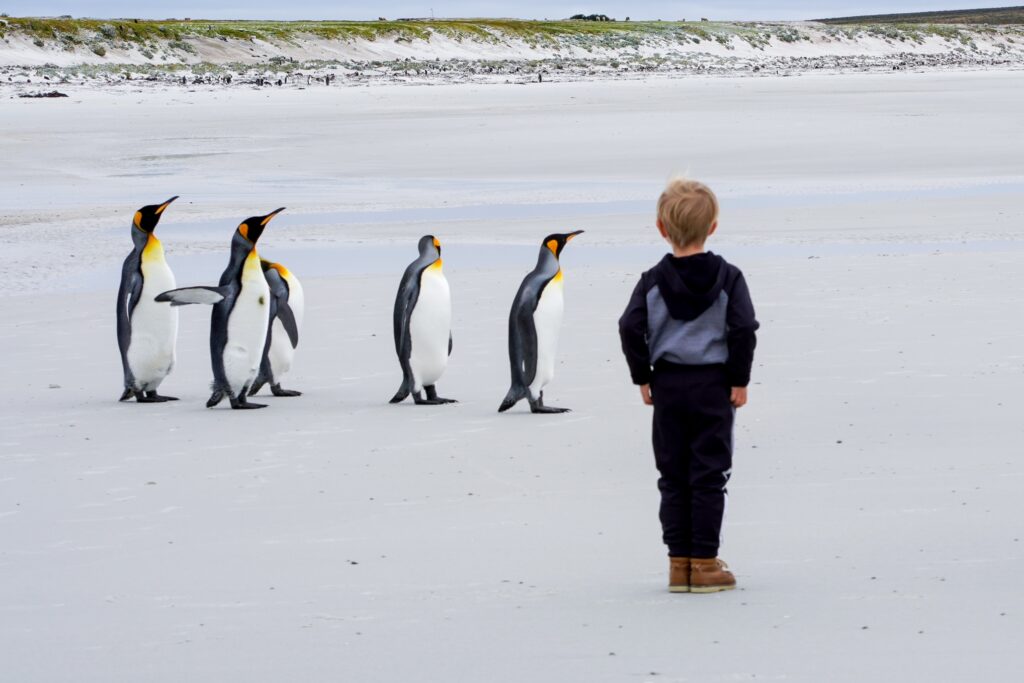
Frequently Asked Questions
Still has questions about worldschooling. Feel free to contact with me on Instagram or through our newsletter. In the meantime, here are some answers to the most frequently asked questions regarding about world schooling.
Conclusion: What is World Schooling?
Hope your wheels are turning as you consider what is worldschooling for your family. What could it look like, what might world schooling cost, what benefits could it bring your family and what opportunities could it give you?
But more than anything, I hope you take away that anyone can worldschool and that at the end of the day no matter what type of worldschooling curriculum or worldschooling hub you choose, the best part of worldschooling is more time exploring and learning together with your kids.

